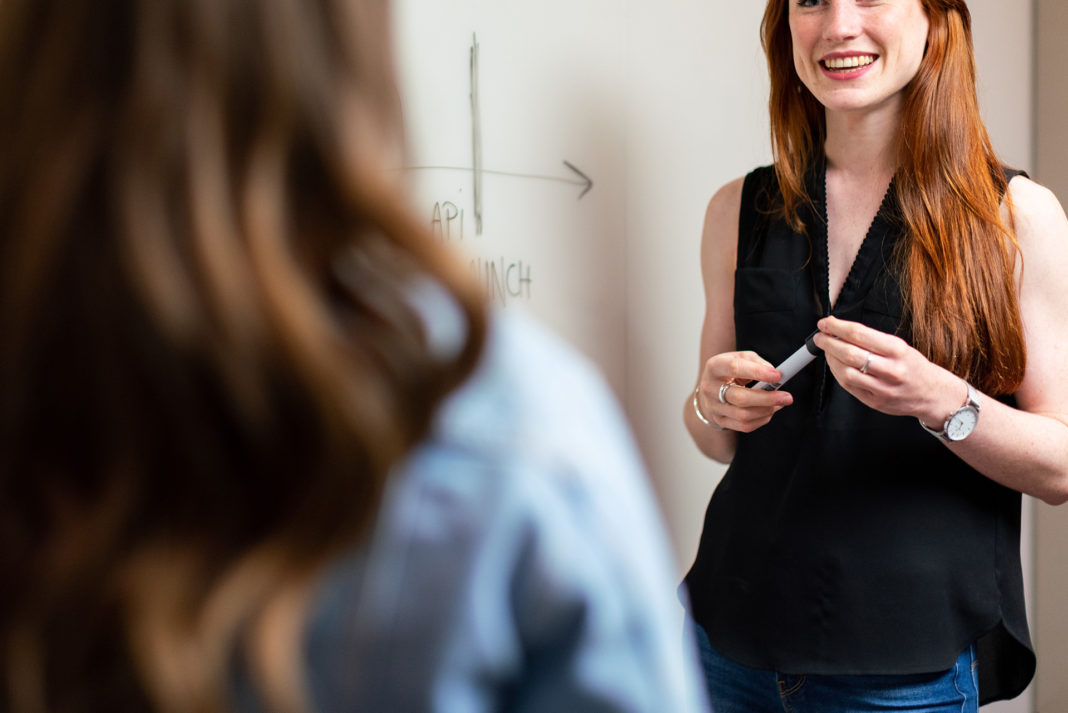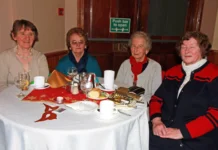“One key thing we need to do is to keep children home when they are unwell,” a local GP points out this week as children and teachers return to school – some excited, others cautious, but everyone knowing it’s not ‘back to normal’.
Schools are working hard to adapt classrooms, structure drop off and collection times and adhere to public health guidelines on Covid-19.
As Dr Elma Gaffney of Livinghealth, Mitchelstown, explains: “School is obviously so important for a child’s education and a vital place in which to socialise – the benefits are immense.
“Many, perhaps all, parents will be understandably cautious, but it is important to remember that the vast majority of children who have been infected with Covid-19 have had a very mild illness so, from what we know, the risk to a child is very low.
“However, we need to avoid infection being spread within schools, to staff, to children’s families and beyond to the rest of the community.
“One key thing we need to do is to keep children home when they are unwell. But how unwell? What temperature is too high? When should parents call the GP?
“It’s not going to be easy, because the symptoms are so similar to other infections, but the Irish College for General Practitioners and Paediatricians have given some helpful guidance for pre-school and primary school children.
WHEN A CHILD SHOULD NOT GO TO SCHOOL AND THEIR PARENT SHOULD PHONE THEIR GP:
• When they have symptoms which could indicate Covid-19
• Fever of 38 degrees or higher, OR
• A new cough, OR
• Difficulty breathing, OR
• Change or loss of sense of taste or smell.
If the child has any of the above symptoms they stay at home and isolate. You should telephone their GP who will tell you what to do next – including whether they need a free test.
The rest of the child’s household should also stay at home, at least until they are further advised by the GP.
If your child appears seriously unwell it is unlikely to be Covid-19 and is more likely to be another illness that needs urgent medical attention. Please call your GP or phone 999 if you are very concerned – we do not want to delay treating other illnesses such as meningitis or pneumonia.
Please also note:
Children should not go to school if someone in their household is unwell with symptoms of Covid-19 – that person should phone their GP.
Children should not go to school if they are told they are a close contact of someone who has tested positive for Covid-19.
Children should not go to school if they have returned from a country that is not on the green list within the last 14 days
WHEN A CHILD SHOULD NOT GO TO SCHOOL AND SHOULD BE MONITORED AT HOME BY A PARENT OR CARER
A child who is mildly unwell with a temperature of less than 38 degrees and who has no cough, no difficulty breathing and normal sense of taste and smell, should stay at home with a parent or carer.
Their parents can go to work and siblings can go to school.
The parent or carer should telephone their GP if the child becomes more unwell.
These children can return to school once they have been well for 48 hours
A CHILD CAN GO TO SCHOOL EVEN IF …
If they have a runny nose or are sneezing, but are otherwise active and well with a normal temperature (less than 37.5 degrees), no cough and no difficulty breathing and no loss or change in taste or smell.
Dr Catherine Clifford of the Park Clinic in Fermoy explains: “It would be helpful to have a thermometer in every home. The temperatures quoted are how hot your child is before they take any ibuprofen or paracetamol.
“The guidelines are very helpful but do not cover every scenario, your own judgement as a parent is very important and if you feel your child is very unwell you should contact your GP by phone straight away.”
She continued: “As parents, we should all anticipate a few more days off school and work.”
CONTACT WITH ELDERLY
Dr. Clifford also advises against allowing an unwell child to have contact with people who are over 70.
“In many families, grandparents would previously have helped out when a child is off school sick – at the moment I would be cautious about this. It is not sensible to pass on any infection, but especially something that could turn out to be Covid-19, to an older relative who could become seriously unwell.”
Dr Sura Aldeen explains how helpful it is to take a test.
“We have to err on the side of caution and test anyone with relevant symptoms, even though it may turn out to be another infection. The test takes a few seconds and is a little uncomfortable but most children manage well. There may soon be a different testing method for children, but we do not expect a change for another few weeks.
“If a child has symptoms which could indicate Covid-19, but does not get a test, this leaves no option but 14 days isolation. Most coughs and fevers will not result in a diagnosis of Covid-19 so if the test is negative, the parents can get back to work immediately and the child can return to school once they are free of symptoms for 48-hours.
“Children do not need a certificate from a GP to return to school or creche. Parents need to follow the advice on how long to keep their child off school which is available on the HSE website.”
AVOID GUESSWORK & RUMOURS
Dr Marty Moller of Family First Medical Practice, Fermoy, explains that there are no simple rules about what happens in a school if a child tests positive.
He said: “Many parents are asking whether their child should stay home if another child in their class or pod tests positive. We are expecting further guidance about this in the coming days but we’re told there will not be any blanket rules – each situation will be assessed by Public Health staff.
“Public Health will contact each parent if a child is classified as a close contact of another child or staff member who tests positive, so please try to avoid guesswork and rumours which could cause a lot of upset and increased anxiety.”
And he encouraged every person in the local area to play their part.
“Children have missed out on a lot over the last six months, as we are often reminded the best way of keeping schools open is to keep levels of Covid-19 low in the community, so let’s all help to keep children learning and socialising with their friends by washing our hands often, keep a two metre distance from others, limit our contacts to a maximum six people in our homes and gardens and please, contact your GP for a free test immediately if you have any symptoms of Covid-19.”












